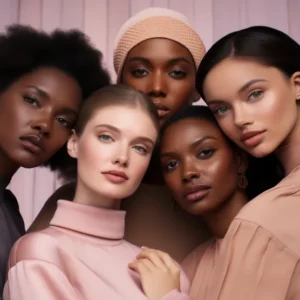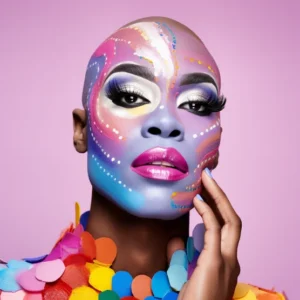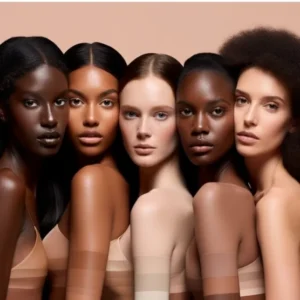In the realm of beauty, there is a growing movement to redefine the standards of flawlessness and embrace the natural diversity of skin. This article delves into the complexities of navigating beauty with skin conditions, highlighting the challenges faced, the changing narrative within the beauty industry, and the empowering journey towards redefining what it means to be truly flawless.
Navigating Beauty with Skin Conditions
Historical Perceptions
- Stigmatization of Skin Conditions: Historically, skin conditions have often been stigmatized, contributing to a narrow definition of beauty that excludes individuals with diverse skin experiences.
- Evolving Beauty Standards: A shift in societal attitudes is challenging the notion of flawlessness, prompting a reevaluation of beauty standards to include and celebrate all skin types.
Challenges Faced by Individuals with Skin Conditions
Limited Representation
- Underrepresentation in Media: Individuals with skin conditions are often underrepresented in mainstream media, perpetuating unrealistic beauty ideals that do not reflect the true diversity of skin experiences.
- Societal Stigma: Stigma surrounding skin conditions can lead to feelings of self-consciousness and negatively impact mental health, creating barriers to self-expression and confidence.
Product Accessibility and Formulation
- Limited Product Options: Historically, there has been a lack of inclusivity in product formulations, with limited options that cater to the unique needs of individuals with various skin conditions.
- The Need for Specialized Products: The demand for specialized products that address specific skin concerns, such as hypoallergenic and dermatologist-tested formulations, is driving changes in the beauty industry.
The Changing Narrative in the Beauty Industry
Celebrating Diversity
- Inclusive Beauty Campaigns: Beauty brands are increasingly featuring models with skin conditions in their campaigns, challenging traditional beauty norms and celebrating the diversity of skin experiences.
- Authentic Storytelling: Authentic storytelling, where individuals share their personal journeys with skin conditions, is becoming a powerful tool for dismantling stereotypes and fostering understanding.
Advocacy and Representation
- Online Advocacy Movements: Online movements and social media platforms are serving as powerful advocacy tools, amplifying the voices of individuals with skin conditions and promoting visibility.
- Inclusive Representation in Beauty: The call for inclusive representation in beauty includes advocating for models and influencers with skin conditions to be featured across a spectrum of beauty campaigns.
Empowering Self-Expression
Makeup as a Tool for Empowerment
- Camouflage and Artistry: Makeup serves as a tool for both camouflage and artistic expression, allowing individuals with skin conditions to choose how they present themselves to the world.
- Creative Makeup Trends: Creative makeup trends, such as face and body art, are gaining popularity, providing individuals with skin conditions unique opportunities for self-expression.
Community Support and Connection
- Online Support Communities: Online communities provide a supportive space for individuals with skin conditions to share experiences, tips, and product recommendations, fostering a sense of community.
- Beauty Influencers with Skin Conditions: Beauty influencers who openly discuss and share their experiences with skin conditions inspire others and contribute to the normalization of diverse skin narratives.
Future Directions
Product Innovation and Accessibility
- Inclusive Formulations: Ongoing product innovation focuses on creating inclusive formulations that cater to a wide range of skin conditions, promoting accessibility and choice.
- Accessible Beauty Education: Beauty education programs are evolving to include training on working with diverse skin conditions, ensuring that professionals are equipped to meet the unique needs of clients.
Policy Changes and Advocacy
- Advocating for Industry Change: Advocacy efforts are pushing for policy changes within the beauty industry, encouraging more inclusive practices in product development, advertising, and representation.
- Mental Health Support: Recognizing the impact of skin conditions on mental health, there is a growing call for increased mental health support within the beauty industry, promoting holistic well-being.
Conclusion
Redefining flawlessness in the context of beauty involves acknowledging and celebrating the diverse experiences of individuals with skin conditions. As the beauty industry continues to evolve, there is a collective effort to dismantle stereotypes, challenge societal norms, and foster a more inclusive beauty culture. By embracing the inherent beauty of every skin type and condition, we pave the way for a future where beauty is truly boundless, and individuals with diverse skin experiences feel empowered, seen, and celebrated.



